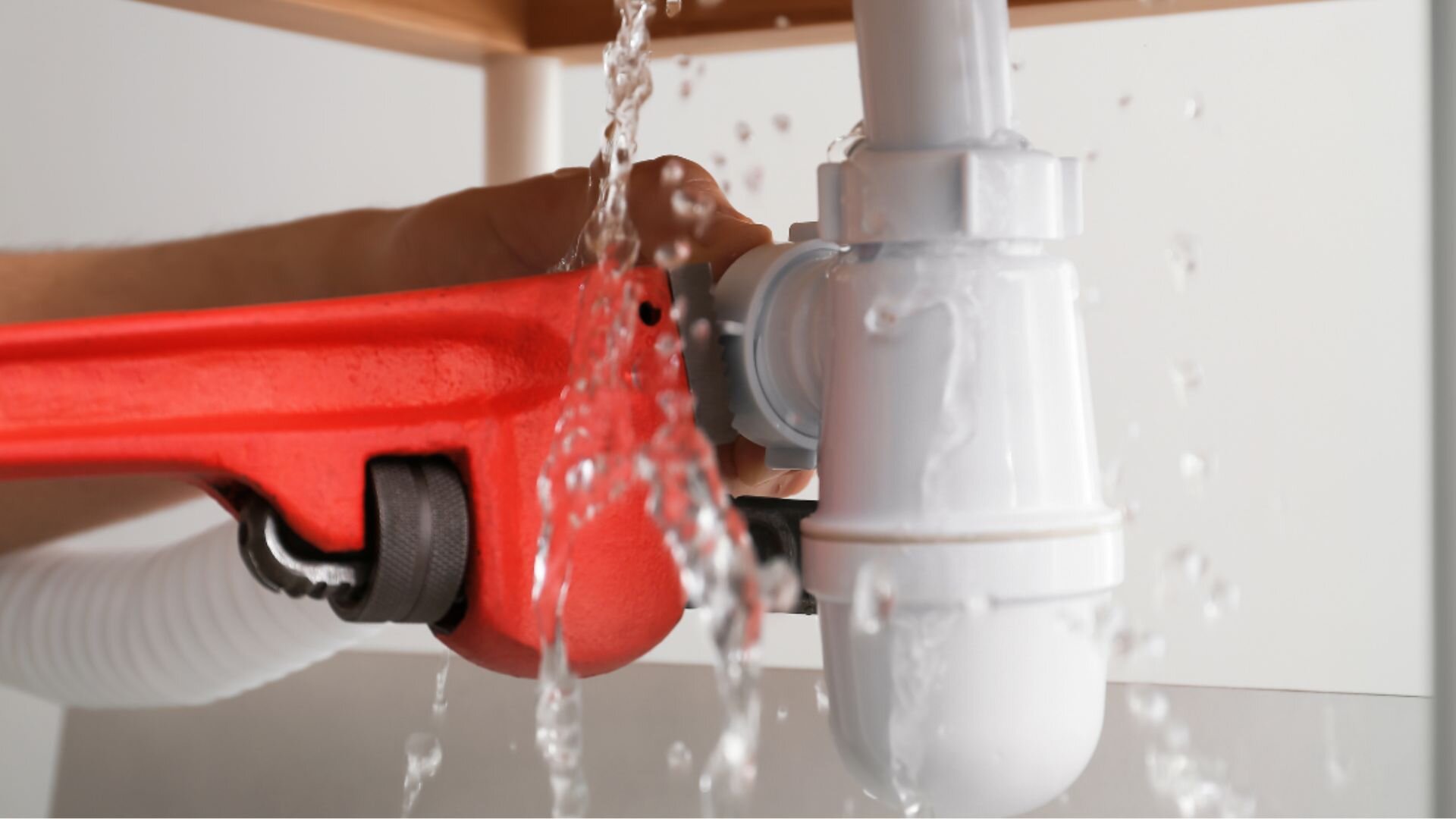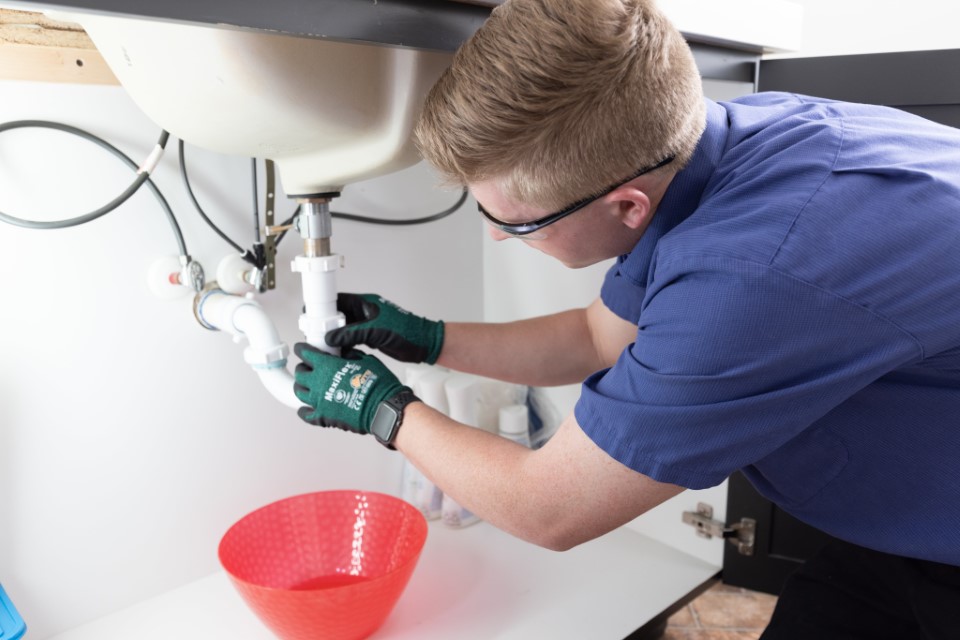What are your opinions about Expert Tips for Emergency Plumbing Repairs?

Plumbing emergency situations can strike at any moment, causing stress and anxiety and potential damage to your home. Whether it's a burst pipeline, a blocked drainpipe, or a leaking tap, understanding how to handle the scenario until a specialist plumbing arrives can save you from more issues. This write-up offers crucial emergency pipes suggestions to aid you reduce damages and restore control throughout a plumbing dilemma.
Turn Off the Water System
The very first step in any pipes emergency situation is to turn off the water. For localized problems, such as a dripping faucet or bathroom, switch off the valve near the component. When it comes to a significant leak or ruptured pipeline, locate your home's primary water shut-off shutoff and turn it off right away. Recognizing the location of these valves ahead of time can save useful time throughout an emergency.
Address Little Leakages with Short-lived Fixes
Little leakages can quickly become significant issues if left untreated. Make use of these temporary repairs up until specialist help arrives:
While these fixes aren't long-term, they can assist lessen water loss and damages.
Unclog Drains Pipes Safely
A stopped up drainpipe can be a frustrating and untidy problem. Right here's exactly how to tackle it:
If these techniques do not function, stay clear of making use of too much pressure, as it might worsen the obstruction.
Manage Overflowing Toilets
An overflowing toilet can trigger instant mayhem. Right here's what you ought to do:
Turn off Your Water Heater
In certain emergencies, such as a ruptured pipeline, it's smart to shut off your water heater. This protects against getting too hot or damage to the unit when water quits moving. Shut off the power supply to the water heater (electric or gas) and allow it cool to prevent prospective risks.
Temporarily Quit a Ruptured Pipe
A burst pipeline can cause considerable water damage in mins. To alleviate the problem:
Call a specialist plumbing technician instantly to address the trouble permanently.
Handle Frozen Water Lines Thoroughly
In cooler environments, frozen pipelines are a common emergency situation. If you think a frozen pipeline:
Stop Further Damages
Taking quick action to decrease damage can conserve you time and money in the future. Below's how:
. Have an Emergency Situation Plumbing Set
Prepare a fundamental pipes emergency situation kit to deal with minor problems successfully. Your package needs to include:
Having these devices on hand can make a significant difference in your capability to handle emergency situations.
Know When to Call a Specialist.
While quick fixes can aid momentarily, particular pipes concerns require immediate professional attention. Call a plumbing if:.
Without delay getting in touch with a professional guarantees the issue is resolved appropriately and protects against additional issues.
Conclusion.
Plumbing emergency situations can be frustrating, yet with the ideal understanding and tools, you can take care of the scenario efficiently up until assistance arrives. By switching off the water, resolving little leaks, and using short-term fixes, you can minimize damages and maintain your home safe. Keep in mind, these tips are temporary remedies; constantly speak with a licensed plumber to take care of the source of the problem. Prep work and fast thinking are your best allies in any kind of plumbing emergency.
8 Helpful Tips for Managing Plumbing Emergencies at Home
If your plumbing system hasn’t failed once, wait for it because almost everyone has a story to tell. Sometimes, it could be simple emergencies such as a leaking pipe, a blocked cistern, or even a big burst pipe. In situations like this, you need to have some handy tips to save you some money and from possible damages.
Take care of minor issues early.
Sometimes, you could have avoided an emergency by taking proactive measures while it was still early. Some major plumbing emergencies can be a result of an ignored minor issue. We recommend that you have items like plumbing tapes and other related items. A plumbing tape can allow you to manage minor leaks before the plumber arrives.
Cut off the water supply.
This tip is essential in almost any type of leakage problem. For problems like minor leakages in the toilet or kitchen, turn off the supply that takes water to the affected pipes. If the leakage is a major pipe, you must shut off the supply valve to the entire building. This will help you avoid flooding your home and neighbors if you share a flat.
Know your plumbing system
Folks typically move into a new apartment without understanding the water supply around the building. This can prove disastrous if a water emergency arises and the plumber is far away. The previous tip will prove useless if you don’t practice this one. More importantly, know where your water shut-off valve is located – you’ll need that knowledge to prevent potential home floods.
Have some common handy tools
There are lots of plumbing emergencies that you can handle without hiring a plumber. That’s why you must keep some tools available always. Some tools that you can use to fix simple plumbing emergencies easily include plumbing tapes, screwdrivers, thread seal tapes, plungers, pliers, tape measures, and rubber gloves.
Insulate your pipes from cold
You’ll save yourself from many plumbing expenses if you protect your water pipes from the cold. This is because of the harmful effects that cold weather can have on your pipes. During winter, your pipes can burst from being overly expected to freezing temperatures. So, make sure insulators are there to keep the pipes working correctly.
Avoid practices that will clog your toilet.
Many people indulge in practices that can damage the plumbing system of the entire building. One of these is when they use their toilet to dispose-off garbage. They flush all kinds of things, such as paper towels, bandages, hairs, female sanitary products, etc., down the toilet. This will block your toilet in the long run, incurring unnecessary expenditures. Dump such waste in the trash instead.
Check your dials regularly.
Sometimes, there could be leakages in your home without noticing them in time. So, constantly monitor your water meter dial. If the dial is reading when there is nobody using water, this is an indicator that there is leaking. Check for leaks immediately. Call a plumber as soon as possible if you can’t find any.
https://www.constructionplacements.com/8-helpful-tips-for-managing-plumbing-emergencies-at-home/

We were guided to that editorial on through a buddy on a different web property. Sharing is nice. Helping others is fun. I truly appreciate your readership.
Visit Website